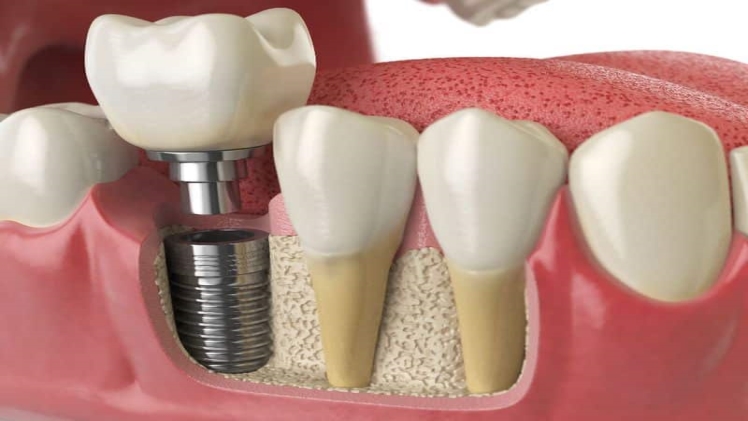

Dental care after tooth loss is a crucial aspect of maintaining overall oral health and well-being. Losing a tooth can impact your bite, speech, and self-confidence, but appropriate dental solutions are available. This comprehensive guide will navigate the various options available, from bridges to dentures to implants, providing insights into benefits, risks, and long-term considerations. We’ll also explore the importance of proper oral hygiene and maintenance after tooth loss. This article is structured as follows: an opening section outlining the challenges and solutions; a detailed analysis of bridges, dentures, and dental implants; and a concluding summary, plus FAQs to address common questions.
Understanding the Challenges of Tooth Loss
Losing a tooth can significantly affect your daily life, impacting your ability to properly chew food, maintain a healthy diet, and even speak clearly. Beyond the functional issues, the aesthetic impact of missing teeth can also affect self-esteem and confidence. A missing tooth may cause adjacent teeth to shift, contributing to further oral health concerns like misaligned bites or gum disease. The importance of immediate and appropriate dental care after tooth loss cannot be overstated.
Dental Bridges: A Fixed Solution
Choosing the Right Bridge for Your Needs
Dental bridges are a fixed restoration that replaces one or more missing teeth. They are supported by anchoring teeth on either side of the gap. Bridges can be fabricated from various materials such as porcelain-fused-to-metal or all-ceramic. The selection depends on aesthetic preferences, budgetary considerations, and the specific location of the missing tooth(s).
Pros and Cons of Bridges
Advantages: Bridges effectively restore the appearance and function of missing teeth, ensuring proper bite and chewing. They often offer a more affordable solution compared to implants, especially if only a few teeth are missing.
Disadvantages: The anchoring teeth require some alteration, and there’s a risk of damage to these healthy teeth over time if the bridge isn’t properly maintained. Additionally, bridges need regular professional cleaning to prevent gum disease and decay. Bridge maintenance can be more involved than other options.
Dentures: A Removable Option
Types of Dentures
Complete dentures replace all of the teeth in a dental arch, while partial dentures replace a few missing teeth. Full dentures are typically made of acrylic resin and often include artificial teeth and gums to mimic the appearance of a complete smile. Partial dentures typically incorporate metal frameworks and clasps to attach to existing teeth for support.
Denture Advantages and Disadvantages
Advantages: Dentures offer a cost-effective way to restore function and appearance when multiple teeth are missing. They can be adjusted or replaced as needed over time, and some models incorporate sophisticated technologies like advanced tooth material and design for superior fit and comfort.
Disadvantages: Dentures may take some time to get used to, particularly with issues like chewing food or pronouncing certain words. They can also become loose or uncomfortable if not cleaned and maintained properly. Denture adhesives may be needed in some cases.
Dental Implants: A Permanent Solution
Implant Placement and Osseointegration
Dental implants are artificial tooth roots that are surgically placed into the jawbone. Over time, the bone fuses to the implant, creating a strong and stable foundation for replacement teeth. This process is known as osseointegration. Modern techniques have improved precision and reduced discomfort associated with surgery and post-surgery healing.
Long-Term Benefits and Risks
Advantages: Implants offer a permanent solution that restores both function and aesthetics. They can prevent bone loss in the jaw, and they preserve the appearance and structure of your jawline. Implants are highly durable if properly maintained.
Disadvantages: Implants require a surgical procedure, which carries inherent risks. The cost of implants is typically higher than bridges or dentures, and healing times can vary. The success rate of implants is high but is dependent on individual jawbone health and lifestyle factors.
Oral Hygiene and Maintenance After Tooth Loss
Importance of Proper Oral Hygiene
Regardless of the restoration method you choose, maintaining good oral hygiene is crucial for long-term success. Brush and floss regularly, and remember to clean any appliances like bridges or dentures according to the specific instructions of your dentist. This helps to prevent gum disease, plaque buildup, and cavities around the restoration. Maintaining oral hygiene is essential for all dental care after tooth loss.
Specific Care Instructions
Different restorations require different levels of care. Implants, for example, need gentle brushing, while dentures need thorough cleaning before and after meals. Proper oral hygiene is crucial to maintain the best outcomes for all dental treatments.
Choosing the Right Solution
The best choice for dental care after tooth loss depends on individual needs, budget, and lifestyle. Patients should consult with their dentist to discuss the various options, weighing the pros and cons of each method. Individual needs should be a key aspect of the decision-making process to determine which option best suits your situation. A balanced assessment of potential benefits, risks, and long-term maintenance is crucial in this decision.
Long-Term Care and Maintenance
Regardless of the chosen restoration, continuous oral hygiene plays a significant role in long-term success. Regular dental checkups, cleanings, and professional care are crucial. Implants, bridges, and dentures all require specific maintenance protocols to ensure their longevity and prevent complications. Establishing a proactive approach to dental care after tooth loss ensures optimal results.
Frequently Asked Questions
What are the cost differences between bridges, dentures, and implants?
The cost of dental care after tooth loss varies depending on the restoration method, the materials used, and the complexity of the procedure. Dental bridges generally cost less than implants, whereas dentures tend to be more economical than bridges. The specific cost of each procedure should be discussed with your dentist for personalized recommendations.
How long does it take to recover from dental implant surgery?
Recovery time after dental implant surgery can vary depending on individual factors like healing capacity and overall health. Some patients experience minimal discomfort, while others may experience mild swelling and bruising. Post-surgery care, including medication and follow-up appointments, significantly influences the healing process. You should carefully follow your dentist’s post-operative instructions for a smooth recovery.
In conclusion, navigating dental care after tooth loss, whether through bridges, dentures, or implants, requires careful consideration of individual needs and preferences. Understanding the pros and cons of each option, coupled with open communication with your dentist, allows you to make informed decisions about your oral health journey. Remember, proactive care and maintenance are vital for long-term success and optimal oral well-being after losing teeth. Consult your dentist for personalized guidance tailored to your specific situation. Dental care after tooth loss is essential for maintaining overall oral health and confidence. Choose the option that best meets your needs, and don’t hesitate to ask your dentist questions!